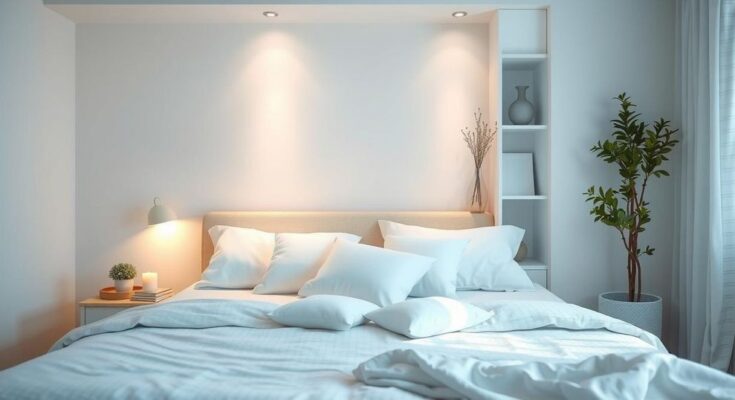It’s curious how our relationship with sleep transitions as we age. In our youth, we often undervalue the importance of a good night’s sleep, but this necessity becomes more apparent as life’s demands grow and responsibilities multiply. Celebrities often attribute their radiant appearances to restful slumber, highlighting that while it’s not the only factor, quality sleep plays a crucial role in recovery and overall well-being.
The emphasis on sleep is gaining traction, with spas worldwide offering specialised programmes aimed at resetting sleep patterns and harmonising with natural circadian rhythms. Experts in health and wellness, such as Dr Lilly-Marie Blecher from Soneva, underscore the adverse effects of urban living on our sleep due to persistent exposure to artificial environments and heightened stress levels.
Sleep deficiency has far-reaching implications, affecting physical and mental health and even our temperament. Nutritionist and fitness expert Samreedhi Goel notes that insufficient sleep can heighten anxiety and trigger unhealthy cravings for carbohydrates, making it challenging to manage appetite and regulate blood sugar and blood pressure levels throughout the day.
A significant factor contributing to sleep deprivation is our tendency to replace rest hours with distractions like binge-watching shows or socialising over heavy meals and caffeine. Goel explains that these choices disrupt our ability to achieve restorative sleep, leading to issues such as bloating and toxin accumulation in the body, which prevent detoxification during rest.
Dr. Blecher highlights the various environmental factors that dictate sleep quality, including temperature, light, and noise levels. The pollutants common in urban areas burden our detoxification systems, enhancing toxins and inflammation that can disrupt hormonal balance, further complicating sleep cycles.
For those seeking to enhance their sleep quality, Soneva Fushi and Soneva Jani in the Maldives offer immersive programmes, featuring both traditional and modern therapies designed to align with your circadian rhythm. Local options like the Talise Spa’s Sleep Wellness Programme include a range of activities from yoga and meditation to dietary consultations.
Dr. Blecher recommends daily practices for improved sleep quality: maintain a consistent sleep schedule; establish a calming bedtime ritual without screens; create an ideal sleep setting that is cool, dark, and quiet; engage in regular physical activity while avoiding strenuous exercise before bed; and ensure timely, nutrient-rich meals upon waking. Moreover, appreciating nature, such as watching sunsets, could enhance overall well-being and sleep health.
As we age, the necessity of quality sleep becomes clearer, with many turning to wellness programmes aimed at improving restfulness. Experts emphasise the impact of urban living on sleep, with distractions and stress complicating restorative sleep. Initiatives from spas like Soneva Fushi offer tailored programmes, while daily habits can enhance sleep quality and overall health significantly.
In summary, sleep’s significance is becoming increasingly recognised, with experts pointing out how urban lifestyles contribute to sleep deficiencies. Through tailored programmes and expert advice, individuals can reclaim their sleep quality by prioritising natural rhythms and creating conducive environments for rest. Practising specific daily habits can dramatically enhance sleep and overall health, guiding us towards a more balanced and fulfilling life.
Original Source: www.voguearabia.com



